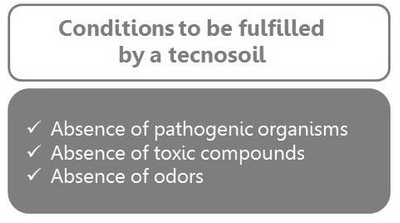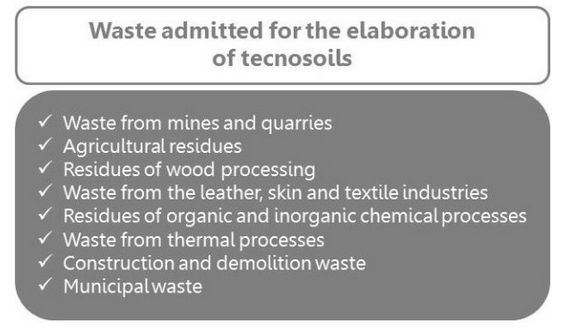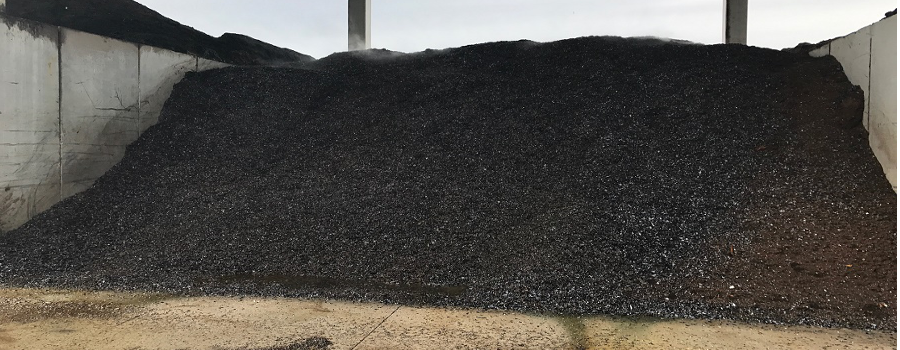Artificial soils, also called tecnosoils, technosols or technosoil are, as the name implies, artificial soils made from mixtures of different non-hazardous waste and by-products. These technosoils are usually complemented with other raw materials for their application both in the improvement of agricultural soils and in the restoration of degraded areas.

The main applications of the tecnosoils are amendment for agricultural soils, material for the recovery of degraded and/or contaminated soils and water, covering of rubbish dumps, employment in areas affected by urban works and infrastructures (roundabouts, roadsides and areas non-recreational garden areas), material for the recovery of mines and quarries or soils degraded by erosion, fire or loss of productive capacity.
The elaboration of the mixtures in order to obtain these artificial soils has a double purpose; on one hand, waste are valorized, minimizing the potential environmental impacts derived from a poor management of these and, on the other hand, degraded soils are recovered without excessive costs.
The idea is to take advantage of all the available resources in the market to valorize and transform them into the best amendments, fertilizers and tecnosoils, essential for the optimal management of agricultural soils or for the correct restoration of soil and environmentally degraded spaces. In this way, wealth is also generated and it is managed to avoid the unwanted and unnecessary elimination of multiple residues and products currently underutilized, able to be reincorporated to a new life cycle, maintaining an environmentally and economically sustainable model that also favors the fight against climate change.
We are working on projects developing tecnosoils in CARTIF, one of them is SUSTRATEC Project, which aims to develop precisely innovative tecnosoils, i.e., artificial soils, which will also possess special features that will make them innovative.
The main novelty of these technological substrates is that they will have a self-fertilizing capacity as well as atmospheric pollutant uptake. The aim is to create “soils to the letter“ and to amend agricultural soils taking into account the different problems. The tecnosoils to be developed will come from the valorization of the sludge coming from the purification plants and agri-food industries. These soils will be complemented with other raw materials such as sugar foams, mussel shell, coffee residues, or pruning, in addition to other additives.
One of the main innovative elements will also be the inclusion of encapsulated bacteria in tecnosoils that will be developed, and that they exert beneficial effects in the field, improving the fertility due to its capacity to fix nitrogen. In addition, artificial soils fixes atmospheric pollutants and contribute to reduce greenhouse gas emissions into the atmosphere.

- Natural soils or tecnosoils? - 28 March 2017
- Do we toast with cava? - 15 December 2016
- Vegetal covers or mulches, right or wrong? - 21 September 2016
